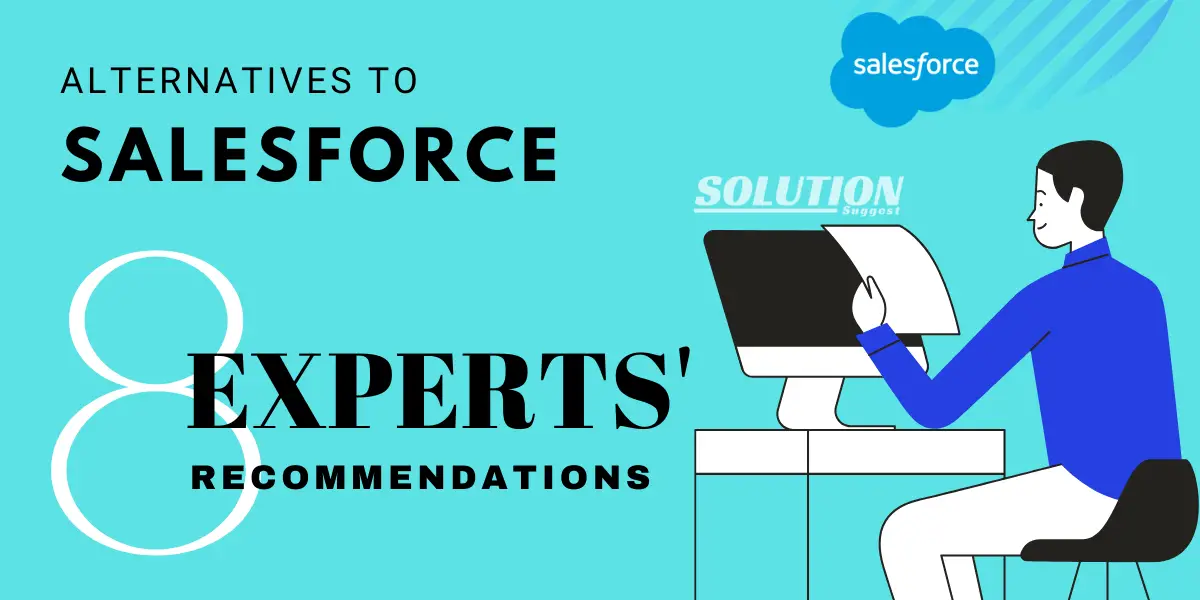As a small business owner, choosing the right customer relationship management (CRM) software can be a daunting task. While Salesforce is one of the most popular CRM systems on the market, it may not always be the best fit for every small business. In 2025, there are a growing number of Salesforce alternatives that offer similar functionality at a lower cost, better customization options, and more user-friendly interfaces.
In this roundup article, we will explore some of the top Salesforce alternatives for small businesses in 2025, and provide an overview of their features, pricing, and pros and cons to help you make an informed decision about which CRM system is the best for your business.
What Is Salesforce?
Salesforce, one of the most popular CRM tools, holds over 19% of the CRM market share, is expensive, and is designed for large businesses. So, if you’re looking for the best Salesforce alternative that fits your business’s marketing needs better, we’re here to help! We have rounded up 8 marketing experts’ recommendations for the best Salesforce alternatives to help you make a well-informed decision. If you like the article, please leave a comment down below.
5 Things to Consider When Choosing the Right Salesforce Alternative
1. Customization: For effective sales management, CRM customization is very important to fit your business’s needs and Salesforce doesn’t have as many customization options as its competitors. Also, its tool kits are not easy-to-use. Go for the Salesforce alternative that offers additional customization at an affordable price.
2. Integration: Make sure the Salesforce alternative you choose provides seamless integrations with popular marketing tools like MailChimp, Quickbooks, Google Cloud, LinkedIn (and other social sites), DocuSign, ActiveCampaign, Dropbox, and more.
3. User Dashboard & Reporting: Sometimes, reports generated by Salesforce CRM can be complex and you may want a CRM software that makes sales report a little more simple to understand and can be applied to your B2B or B2C sales cycle. Ask to provide a free trial or demo.
4. GDPR features: With GDPR now in effect, you should choose a GDPR-ready CRM that enables you to manage customers’ data more efficiently. Salesforce alternatives help you honor your customer’s request in just a few clicks. This way you save time and resources.
5. Support & Training: Make sure the Salesforce alternative you choose provides personalized training sessions for you or your staff to use the features. For smooth CRM adoption, it is a must for every business to discuss the training details (including the cost of support). Salesforce does offer great support but it is expensive as well as Salesforce University is not free. You have to pay an additional cost to learn how you can get the most out of the software.
6 Best Salesforce Alternatives for Small Business of 2025
1. Creatio

Joe Tuan, CEO at Topflight Apps: At my company, everything that has to do with marketing, sales, and production goes through Creatio. We use this CRM to track all our customer interactions, work with leads, set up marketing campaigns, and strategize overall. The reason we picked Creatio is it’s more than a regular CRM system. I think they call it a low-code CRM platform. This low-code concept has been very appealing. It means that Creatio allows us to program our unique workflow into the CRM without actually coding. In essence, you merely modify a bunch of advanced rules around every single step of your business process.
For instance, if I want to start getting text reminders to follow up with every lead that hasn’t been contacted in three days, I can do that in a matter of minutes. And I don’t have to pull in our developers to do that, because as with any software development company, there’s never time for our own sites. We love Creatio’s flexibility.
Besides that, I also fell in love with Creatio’s marketplace of business apps. We’re a lean startup and rely on a variety of software in our day-to-day. So it was great to see dedicated Creatio apps that seamlessly tied in all our activities spread across Trello, Gmail, and other solutions with Creatio. Having this ability to interface all data through a single platform has been instrumental to our growth.
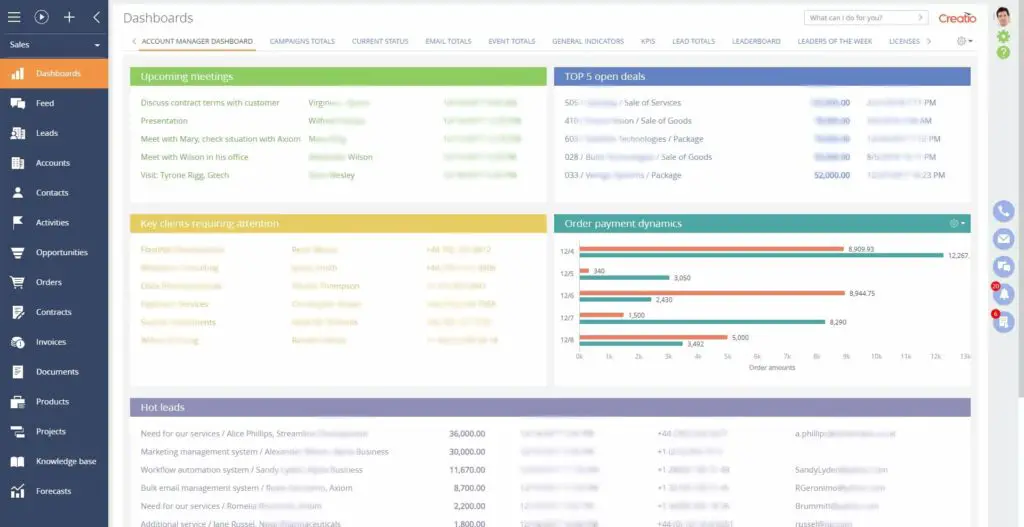
2. Pipedrive

Vladlen Shulepov, CEO at Riseapps: I’m a business strategist with 12+ years in IT, facilitating a team of stellar developers. We successfully delivered 50+ projects in healthcare, wellness, on-demand services, IoT, AR, and other sectors. The alternative to Salesforce our team uses is Pipedrive.
The main reasons we prefer this CRM are:
- Usability: A clean dashboard layout, intuitive interface, and visual sales pipeline make this CRM really easy to use. There are Pipedrive mobile apps, too, which allow you to easily access the tool on the go.
- Automation: Workflow automation is another advantage of this tool. It is possible to automate any repetitive tasks to simplify the sales process and focus on tasks that require more time.
- Integration: One of the defining traits that make this CRM so convenient for us is integration with a variety of tools, from Google to Trello.
- Custom reports and analytics: Thanks to these features, users can see all activities and deals, whether they were won or lost and why, what makes for the best conversion rate, etc.
- Affordable pricing: Pipedrive is considerably cheaper than Salesforce. This is obviously a huge benefit, especially for a smaller company like ours.”
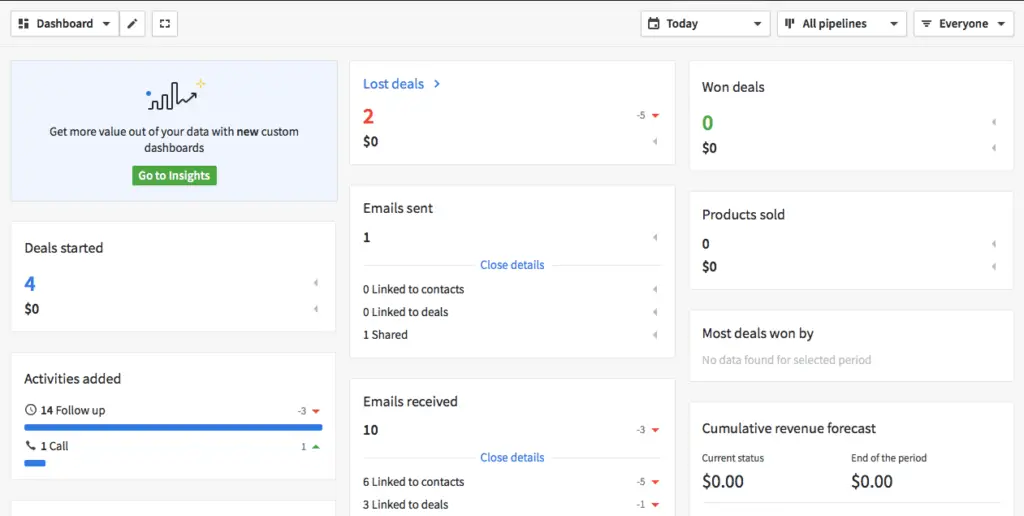

Anastasiia Khlystova, Content Marketing Manager at HelpCrunch: I am a content marketing manager at HelpCrunch with 5+ years of experience in content creation and optimization. While choosing the best CRM system for our company, our team has tried Salesforce, HubSpot, and Zoho CRM until we finally dwelled upon Pipedrive.
“There are several outstanding features that made us lean in its favor:
- Convenient, clean, and intuitive interface.
- The ability to create as many pipelines as we need.
- Easy lead filtering.
- Numerous third-party integrations.
- Seamless email integration with a short delay of no longer than 1 second.
- The ability to create leads and deals directly from the mailbox.
- Way more affordable pricing
There are other important features that aren’t that unique but important nonetheless. For one thing, the tool is 100% GDPR compliant. Since they have their data centers in the US & EU, there are rarely any problems or delays.
At last, Pipedrive’s pricing is way more affordable. Even though there are some minor features missing from Pipedrive if compared to Salesforce, we really enjoy its simplicity and design.
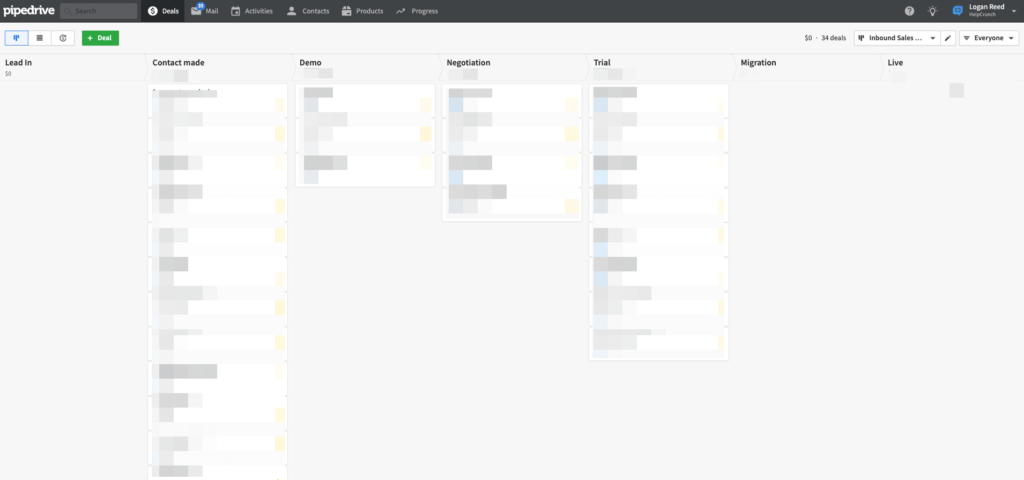
3. Microsoft Dynamics CRM

Andrew Repin, CRM Consultant at ScienceSoft: We use Microsoft Dynamics CRM and are looking to upgrade it to Dynamics 365 soon. For us, Microsoft Dynamics was an obvious choice, due to the number of Microsoft products we were already using, such as Office, SharePoint, and PowerBI.
When it comes to functionality, Microsoft Dynamics provides the same key capabilities as Salesforce, i.e., automation features for marketing, sales, and customer service.
We further extended Dynamics CRM functionality with the help of add-ons and additionally customized the CRM solution to meet our business needs better.
Possibly, the only real downside to Dynamics that I can mention is that if you don’t have enough expertise in configuration and customization, the setting up process may become tedious and time-consuming.
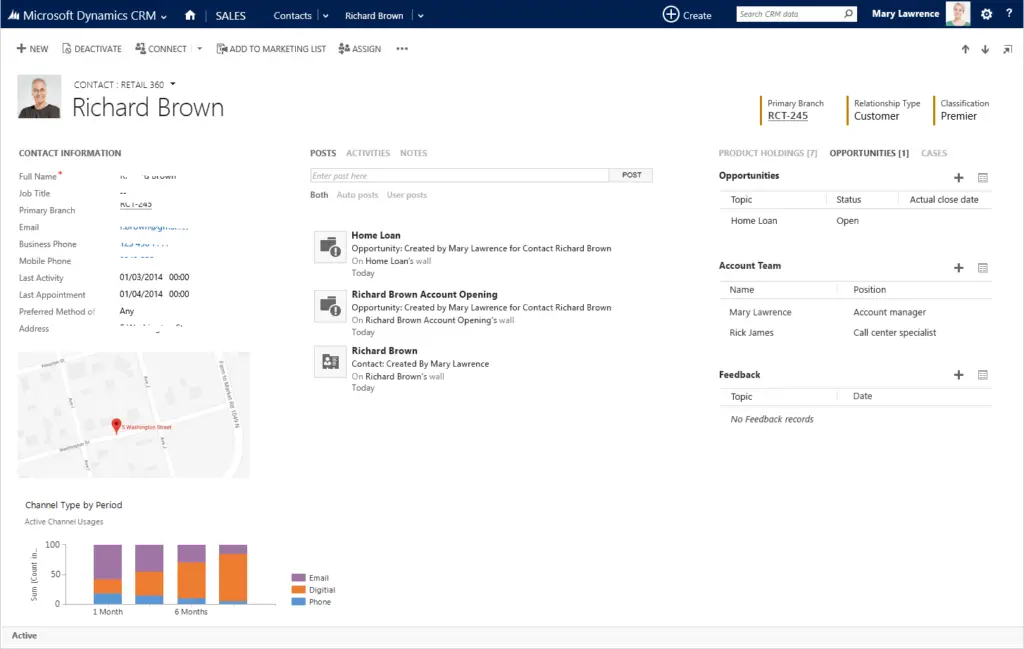
4. HubSpot

Erico Franco, Inbound Marketing Manager at Gravity: A great alternative to Salesforce is HubSpot. Just like SalesForce, HubSpot is a leading global technology company with excellent infrastructure and great support. HubSpot’s CRM has the great advantage of being free forever and without limitations.
This is possible due to the focus of HubSpot being its Inbound Marketing and Sales tools. Another advantage is that HubSpot has extensive training material through articles and video lessons that help a lot in the deployment. The implementation of HubSpot is also simpler than the SalesForce thus requiring less effort and decreasing internal costs.”
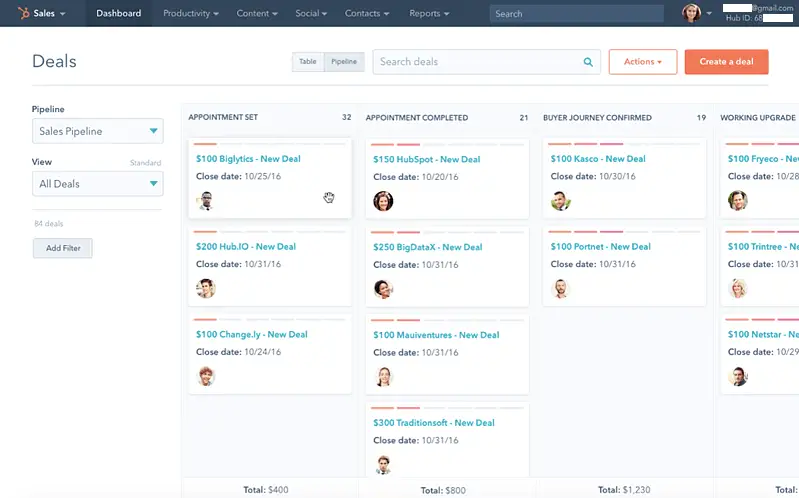

Ayushi Sharma, Business Consultant at iFour Technolab: Salesforce is considered a powerful platform for enterprises because it provides its users with a comprehensive range of features, for instance, marketing, sales, commerce, and analytic solutions.
However, for the past few years, people are looking for Salesforce alternatives. One of the reasons is that it fully relies on an internet connection and is expensive. Moreover, inefficient system upgrades and planned downtimes can become a real problem for an organization that wants to manage such system problems independently.
One of the best alternatives for Salesforce is HubSpot CRM. This is free and a robust CRM solution with exceptional features and functionalities which are suitable for every business. In addition to this, it provides CRM-related platforms referred to as a hub for one-to-one marketing, customer support, and sales.
Easily and quickly integrates apps such as Social media platforms, Gmail, or Outlook to make outreach even simpler and track email performance over time. HubSpot CRM also includes live chat, reporting dashboards, email templates, canned snippets, contact management, and team email options. For small enterprises, it is a cost-effective solution.
5. Insightly

Christian Antonoff, Content Writer at ExcelTemplate: It’s hard to replace Salesforce as your go-to CRM when it has so many important features and offers integrations with other platforms. However, Salesforce is expensive and might not suit the needs of small businesses. Here’s a Salesforce alternative that I use and really enjoy.
Insightly is a powerful project management-oriented CRM. It lets you manage projects, deals, prospects, and contacts. It also allows you to add contacts directly from your email, which could save you time.
Another cool feature of Insightly is its handling of contacts and tasks. It’s really easy to keep track of how a deal is progressing or when a contact has been updated. The dashboard lets you see how your sales process is going, from capturing leads to closing deals. On the downside, many features are absent from Insightly’s Plus plan.
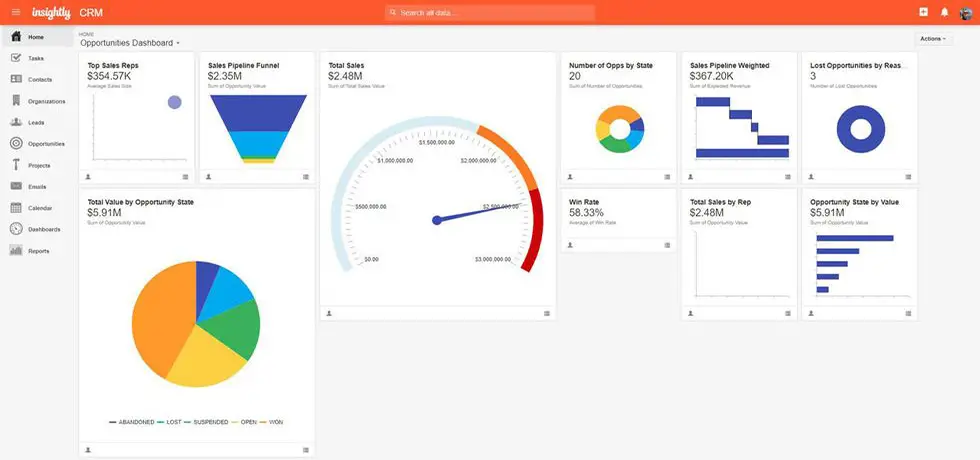
6. Hoppin’

Joaquim Miró, Founding Partner at Hoppin’ World: There are many alternatives to Salesforce, but I personally recommend HubSpot wholeheartedly (more intuitive, has easier onboarding, and is a great program for startups as the free version is still very powerful).
In addition to CRMs, other alternatives, or should I say sales enablers include more disruptive technology. For example, our VR SaaS Solution Hoppin’ allows people to meet together as avatars in real-world places by harnessing 360 video technology.
Hoppin’ allows businesses, organizations, and experience providers to teleport their sales prospects, clients/users, and internal teams directly into any location/experience using 360 videos (pre-recorded or live).
With an Oculus Go, marketers, and sales teams can hop in the VR app and literally meet together as avatars and give them in-(virtual)-person guided tours of any real-world locations of their choice.
This can be used to give guided tours (ie. museums, art galleries, zoos, aquariums, theme parks); to sell to anyone around the world (i.e. commercial real estate agents selling hotels without having to fly in the investors), to survey existing facilities (i.e. manufacturing plants, mining locations, oil rigs, etc.), and for training (i.e. remote live training of a specific engine room on a specific type of cargo ship). There are countless use cases and new ones showing up every day.
You May Also Like: MailChimp Alternatives – 35 Experts’ Opinions
Conclusion
These are some of the best Salesforce alternatives tailored to fit your needs for growing your business. Solution Suggest provides you with software recommendations (from real users) to help you make a well-informed decision. We hope the article was helpful to you in selecting the right Salesforce alternative for your business

